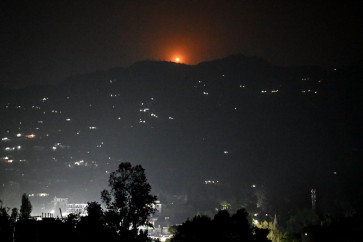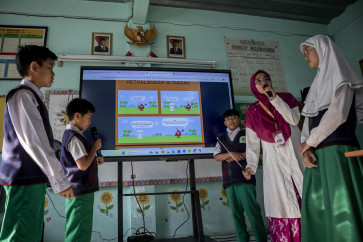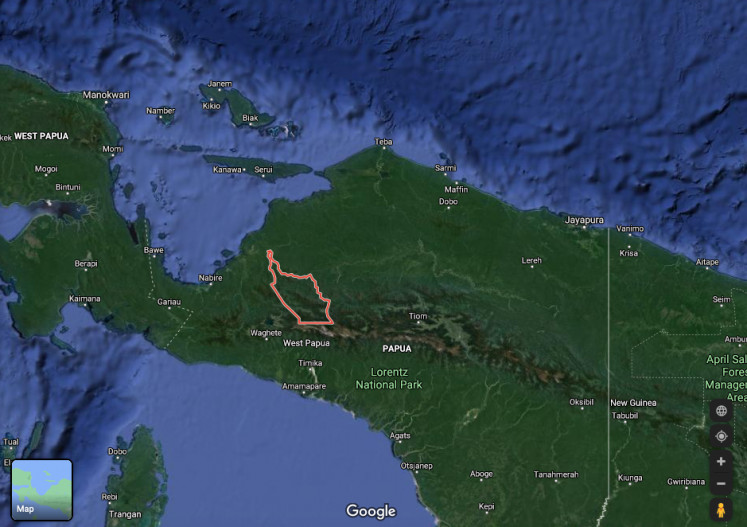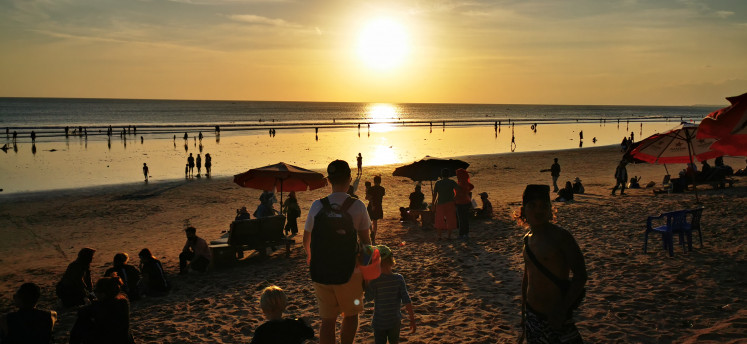Hide and seek: Being LGBT and Chinese Indonesian
Change text size
Gift Premium Articles
to Anyone
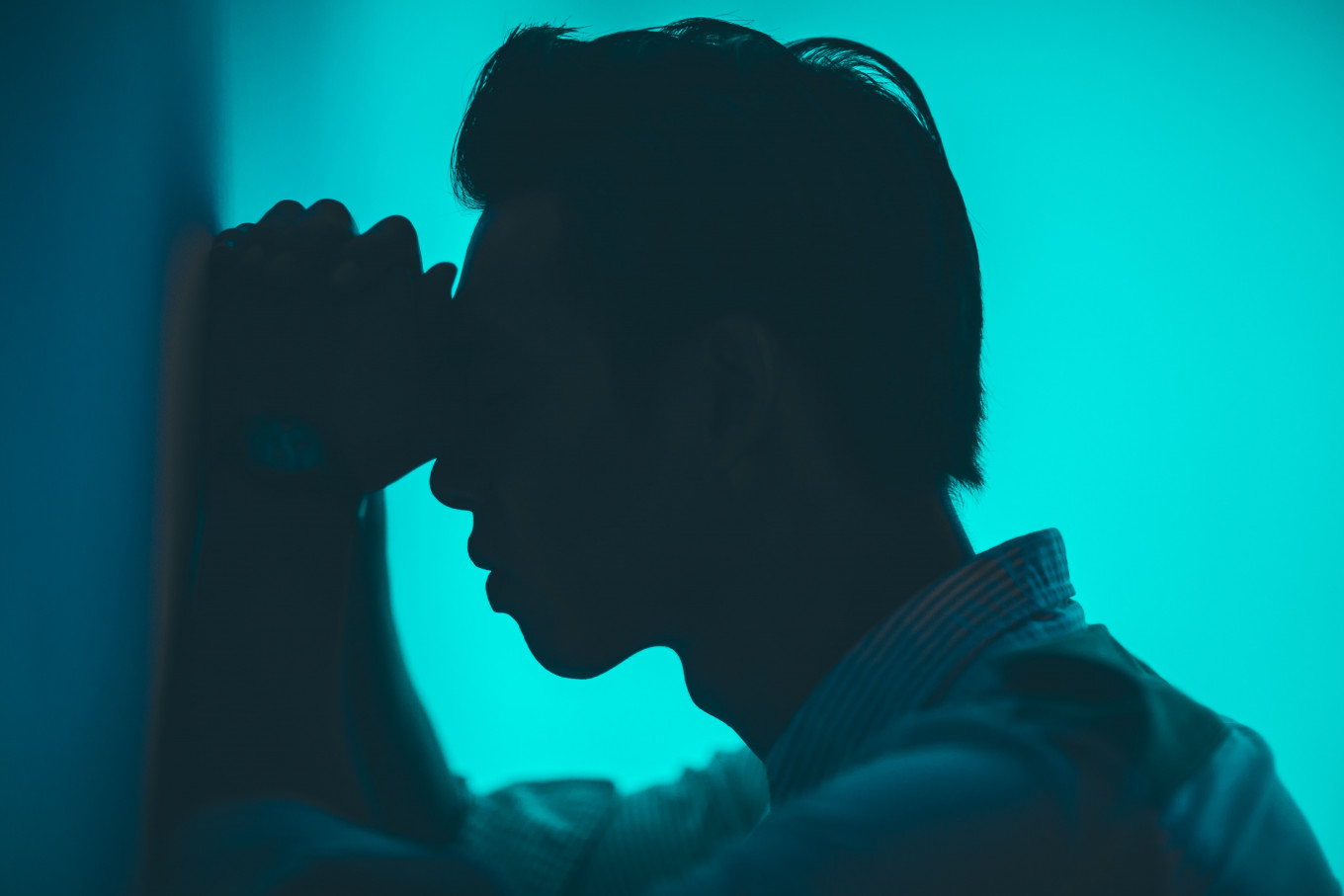
F
or Chinese Indonesians who are members of the LGBT community, Indonesia can be a challenging place to live – to say the least.
Twenty-four-year-old Kai Mata, an outspoken LGBT activist, an openly lesbian singer-songwriter and a Chinese Indonesian, says the hateful messages that she often receives are at the intersection of homophobia and racism.
“[They say things like,] ‘This person has a disorder. I hope you get well soon and return to normal. Or maybe you can return to your home country of China,’” said Kai, who lives in Bali. She added that she received other messages that used expletives and called her racial slurs.
Born in 1997, Kai Mata moved with her family to the United States while she was a baby, after the May 1998 Jakarta riots that targeted the city’s ethnic Chinese population. She moved back to Indonesia as an adult and uses her social media platforms to speak out against the country’s attitude toward minorities.
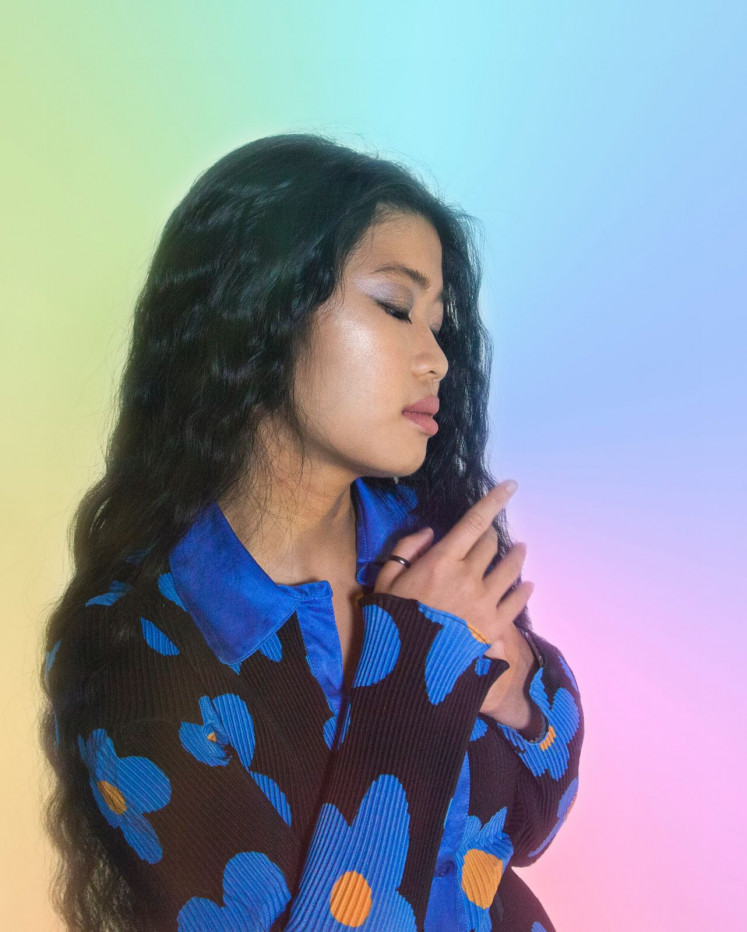
“Being both Chinese-Indonesian and a member of the LGBTQIA+ community feels like I continuously have to keep my head on a swivel for discrimination and being ‘othered’. I feel like I am constantly on the lookout for ways the government and society will attempt to strip away my humanity and my identity,” she said.
Kai cited several damaging events, including the May 1998 riots, a 2016 decision by the Indonesian Psychiatrists Association (PDSKJI) classifying homosexuality as a mental disorder and the controversial family resilience bill, which proposes that LGBT people report for ‘rehabilitation’.
While she said her sexual orientation was still taboo in the larger Chinese Indonesian community, Kai had found solace her own family’s acceptance of her.
“I accept the fact that some people will look down on me due to my sexual orientation, though it hurts to know that the experience of my family is that their peers and extended family look down on them for having a queer child. While I am very grateful for my accepting family, that is not the norm for most Indonesians, regardless of their family’s religion,” she said.
Stephanus Budiman, 26, a gay Chinese Indonesian who lives in Melbourne, Australia, has long accepted the fact that he will not be able to return to Indonesia if he wants to stay true to himself and be happy.
“I keep on comparing myself to my brother because of that. He is straight. And he doesn't mind going back to Indonesia for good. I don't have that luxury,” said Stephanus. “[Because] I am gay, I know that I won't be able to live a happy life in my own home country.”
Stephanus said the Chinese Indonesian community was still “very queerphobic” and that many LGBT Chinese Indonesians still lived “in the closet”. Solidarity with people like himself, he said, was rare in the community.
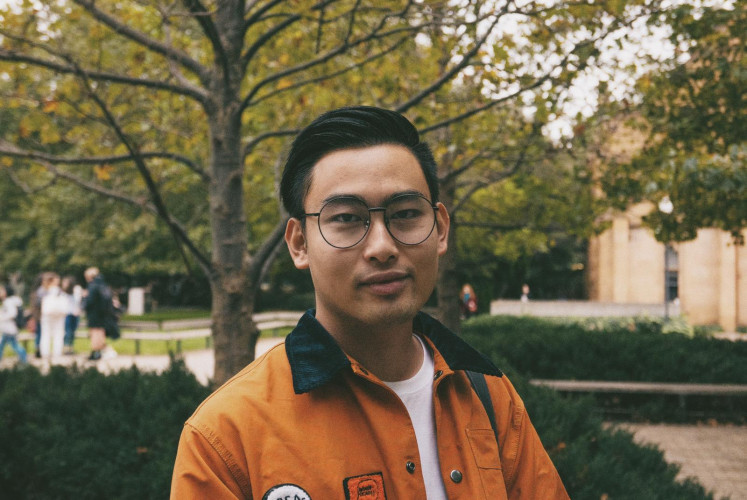
Collective support
Thirty-three-year-old writer and gender studies lecturer Hendri Yulius Wijaya said every Chinese Indonesian LGBT person had a different experience. Hendri, who published his thesis, titled Intimate Assemblages: The Politics of Queer Identities and Sexualities in Indonesia, noted that social class and socioeconomic status could complicate such experiences.
“I don’t want to obscure the fact that economic power plays an important role in shaping our minority experience,” said Hendri, who obtained a master's degree in gender and cultural studies from the University of Sydney, Australia.
“This is why I want us to see advantages or disadvantages of being a double minority solely based on our identities alone. For example, with my middle-class background, I can access good education and subsequently have a good profession despite my double minority status.”
Hendri, who noted that his experience should not be generalized, said economic power might protect LGBT Chinese Indonesians in some ways, despite discrimination and bullying.
For Hendri, who also published Coming Out in 2015, a nonfiction book about being gay in Indonesia, being an ethnic minority and a queer person is inseparable to who he is.
Subsequently, the most pressing challenge for him is how to move beyond single-identity politics.
“Since I am Chinese-Indonesian and also gay, I often feel the need to start seeing how those two identities connect with one another. Further, if we can broaden queerness beyond just gender and sexual identities, then we can see how other minority groups are also ‘queer’, as in they are also often seen as ‘un-Indonesian’ or ‘non-normative’,” he said.
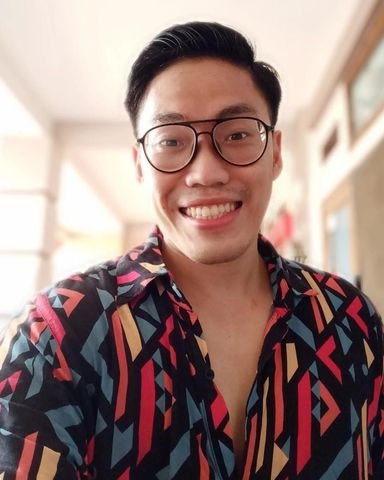
Dede Oetomo, 68, founder of GAYa Nusantara, Indonesia’s oldest LGBT advocacy group, said separately that he was able to come to his understanding of his sexual identity because he was used to feeling “different” as ethnically Chinese.
Dede said he thought that one of the most pressing issues was building a “relatively decent life as someone with a non-normative sexual orientation or gender identity: self-acceptance, coming out, dealing with pressure to form a heterosexual family, etc.”
“I don't see how there are any significant differences for ethnic Chinese queers, except probably in areas where Chinese-non-Chinese relations are very segregated – such as in Medan, Riau, Pontianak – where relating to non-Chinese queers may be a challenge,” said Dede.
For Stephanus, the key is helping queer Chinese-Indonesians understand the urgency of bonding together collectively.
“I think the most pressing issue in the past, present and most possibly the future is how to build that awareness in the community that if we don't fight for ourselves, who will?”

